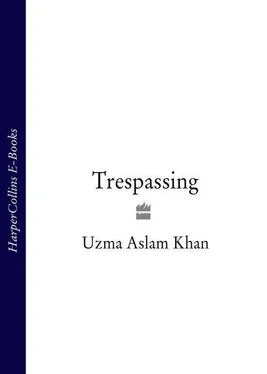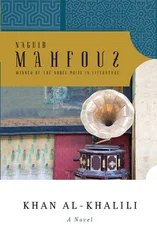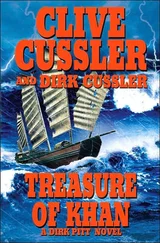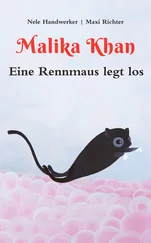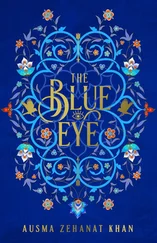Or he could keep sitting, watching the clouds form, wondering how long it would take them to reach his old village, many kilometers down the coast. He’d never been back. But he knew those foreign trawlers had been issued legal licenses now. Nearly everyone from his village had left.
Summer used to be the season for repairing nets. It used to be when women sat on the dunes outside the crumbling walls of their homes, drinking tea, layers of cotton mesh sprawled on the sand. He’d sit with them, with thoughts of poachers quietly at bay. The talk was of rain. Slowly, the women hummed the Sur Saarang, the melody that invoked rain:
Robes of rain God displays
And with each drop He plays,
He plays.
Salaamat and the other children would watch the women darn the nets, imagining they sewed God’s rainy robes, waiting for the drops to fall so they could play with Him.
Now he sat at the foot of the boulder, watching this other world tumble and crash around him. He rubbed the shells Dia had left nearby. He was a silent witness. He’d keep her secret but he’d also keep his own. She’d never know how he’d drawn her on his first and last bus. Or that he’d thought of her in Hero’s shop. Or that she had every reason to hate him.
He walked down to the shoreline again, the same that stretched all the way out to his village. There was a new game the boys were playing the year he’d left. They’d dare each other to swim out to the trawlers, even in the rainy season, and touch the anchor line. Then they’d wave to the band of boys on the beach. But if any boy swam out now and looked back, there would hardly be anyone awaiting his return. Boys were learning to be ajnabis younger every year.
JUNE 1986–FEBRUARY 1987
His second year at Handsome’s, Hero left, and many of the Pathans followed. Salaamat presumed they’d joined one of the all-Pathan bus-body workshops sprouting all around. Or perhaps some had gone north to the border, and Amreeka was training them to be freedom fighters. Whatever the reason, the result was that he took over much of the paint work, though still not the most prestigious work of all: painting pictures. His job was piling putty on every hinge and joint of each bus. When this dried, he covered it with four layers of a mixture of limestone powder, mineral oil and gray tincture. Then he spray-painted from nose to tail, usually magenta, green or blue, sticking scraps of newspaper along the way. Later, he’d peel off the paper and spray the gaps a different shade. The fumes were toxic. His eyes grew bloodshot and nausea became part of the routine.
Most of the newspapers were in English. He tried to read the headlines and ads later in his room. He recognized the letters from the backs of cars, and repeated the sounds of z in Mazda, o in Toyota. He fingered the words and enjoyed their weight on his tongue. He could string sounds without meaning, the way for years he’d listened without speaking: Seven Years Into Soviet Invasion, Refugees Keep Pouring In. Hair Loss, What Hair Loss? MQM Calls For Strike. Nice Girls Don’t Shave. More Buses Set Ablaze. US Increases Aid To Iraq. Women Protest Hudood Laws. Jamaat-i-Islami Calls For Anti-Soviet Rally.
Afterwards, he practiced painting on the used scraps of wood that littered his cell, doing what Hero had done: sketching in chalk then daubing over with oils. Wanting somehow to depict the chronology of his life, he brushed four strokes and filled the shape green. A boat. He gave it a flag. Next was the gray-blue sea carrying large white fish with gills like pockets. And blind fish with razor teeth. And deaf ones blowing bubbles only they could hear. On shore were the dunes for nestling with Rani, for baring her round, egg-shaped shoulders. He drew turtles too.
The next day, he again lived in noxious vapor, waiting patiently for Handsome to tell him he could have the glistening metallic body of the bus he covered red and green yesterday as his own private canvas today.
It happened at last, before his third year.
It was a sixty-two-seater with a monkey seat in rear and bow. Electricians had nearly completed wiring up the fifty-three lights inside to the horn that sang when pressed. As the bus trumpeted, the lights dazzled. The owner, an enormous Punjabi with a mustache rivaling an eagle’s wingspan, had said: ‘Make it a disco bus. Make it from the heart. When it passes, everyone should know my glory. Otherwise, I want my money back.’ He slapped five lakhs cash into Handsome’s hand.
Salaamat was helping a child cut a sheet of steel with a pair of enormous tin snips when Chikna approached him. ‘Ajnabi, your lucky day has come.’
Salaamat held the steel between the snips while the child beat the blunt blades with a hammer. At last, they bit into the metal and a small rectangle fell apart. ‘Why?’ he asked.
‘Why?’ Chikna laughed. ‘See that bus?’ He pointed to the one bursting with activity. ‘Handsome’s going to let you paint it.’
Salaamat looked up. Workers were measuring leopard-skin plastic for the seats. ‘Of course I’m going to paint it,’ he shrugged. ‘That’s what I do now.’
Chikna flicked the hair at Salaamat’s jaw repudiatingly. ‘I mean really paint it. There’s no one else. All the others are leaving. So he’s picked you. If the owner’s unhappy, you’re fired. If he’s happy, you get paid.’
Salaamat watched him walk away.
At last.
The child hammered the dust. His hands and face were covered in grease and his clothes stank. He asked, ‘What will you make?’
Salaamat stared at the iron body. He wanted a hand in every stage of its shaping. He wanted himself shown, all over Karachi. In motion, with horn blaring and lights pulsing and at ease, for admiring fingers to touch. The name would be Handsome’s but the story would be his.
In the following days he began on the undercoating. While it dried, he helped those who’d taken over the metal work. He cut steel strips into floral shapes to be nailed along the flanks when the spray-painting was complete. He sawed into the bus’s gut to make the luggage-boot and nailed iron sheets over the wooden planks of the floor.
Sometimes, he caught fragments of the workers’ chatter. The Soviets were receding but Karachi broiled. Some of the Punjabi workers too felt they should leave, now not to the border to defend the neighboring country, but to the Punjab, to defend their families from the stockpile of ammunition the battle was leaving behind. These were swiftly gaining popularity in Karachi — the city that swarmed with immigrants. It was coming full-circle, Salaamat smirked as he listened to the gossip: those who’d pushed the local people of Karachi to the edge were themselves running from each other. Everyone was falling off the bus. Literally.
The bus-body-making business was one of the worst hit by the riots that began last year when a Muhajir student was run over by a Pathan bus driver. Members of her community insisted it was deliberate, and yet another way they were being exploited. They torched buses, smashed workshops, killed workers, learned to maneuver Soviet and American weapons. As the trouble spread, few remembered the college girl who’d triggered the mayhem by crossing the street at the wrong time on the wrong day.
Salaamat did. While the men gossiped and he worked on the bus, he saw her: books in hand, a blue dupatta sliding down the shoulders of a white uniform. Spectacles and a long braid. No, no glasses. White shoes. With right foot first, she left one side of the street but before reaching the other, she’d make history. If only she’d waited less than a minute. Forty seconds. Maybe even thirty. Had she screamed? Had she seen what the city would become at the moment the front fender smashed into her hips and threw her high into the smog-filled sky? If only she’d taken a different route. If only there had been a sign on her side of the road: Trespassers will be executed.
Читать дальше
Конец ознакомительного отрывка
Купить книгу
